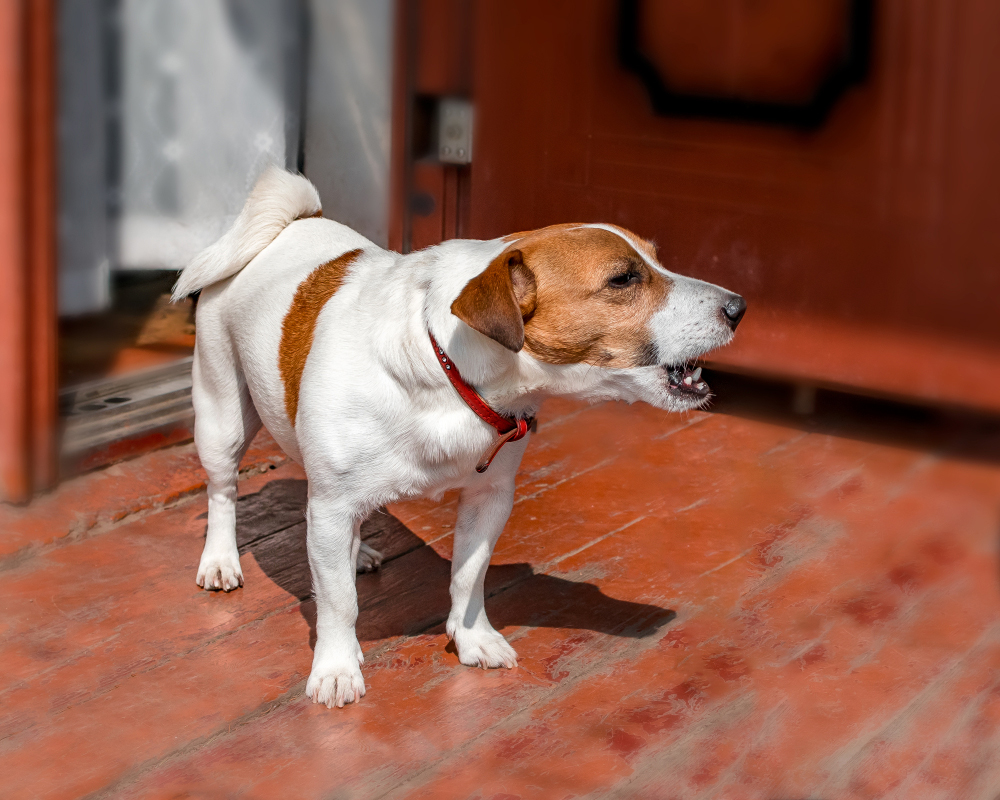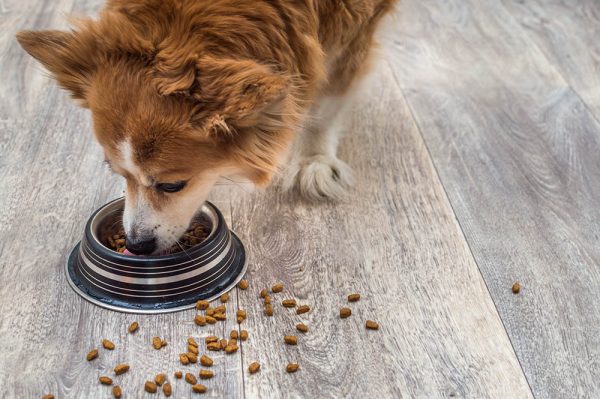In this article
Has your canine pal’s bark been sounding a bit off lately? Does it seem as if your dog’s voice has changed? Then, their bark might be hoarse, which would necessitate a visit to the vet. While there are causes for a hoarse bark that aren’t that serious, other causes are much more serious, so a vet visit is vital to determine what’s going on.
But what exactly are the causes of a hoarse bark, and when should you be concerned about your dog’s voice change? Here are the most common causes of a hoarse bark in canines; in all cases, you should get your pup to the vet so they can figure out the cause. Some of these will do better the sooner they’re caught, so don’t wait to visit the vet!

The 8 Reasons That Your Dog’s Bark is Hoarse
1. Everted Laryngeal Saccules
There are small sacs just inside a dog’s larynx, known as saccules, and when they get turned inside out (or everted) and pulled into the windpipe, a dog’s bark can become hoarse, and other issues can arise. Most often, you will see this condition in canines who are brachycephalic (although it can occur in other breeds). In fact, everted laryngeal saccules are a part of brachycephalic obstructive airway syndrome. These saccules becoming everted can cause respiratory issues, such as your pup emitting a high-pitched sound when they breathe and obstruction of airflow. While the immediate effects of everted laryngeal saccules may not be serious, the long-term effects can be severe.
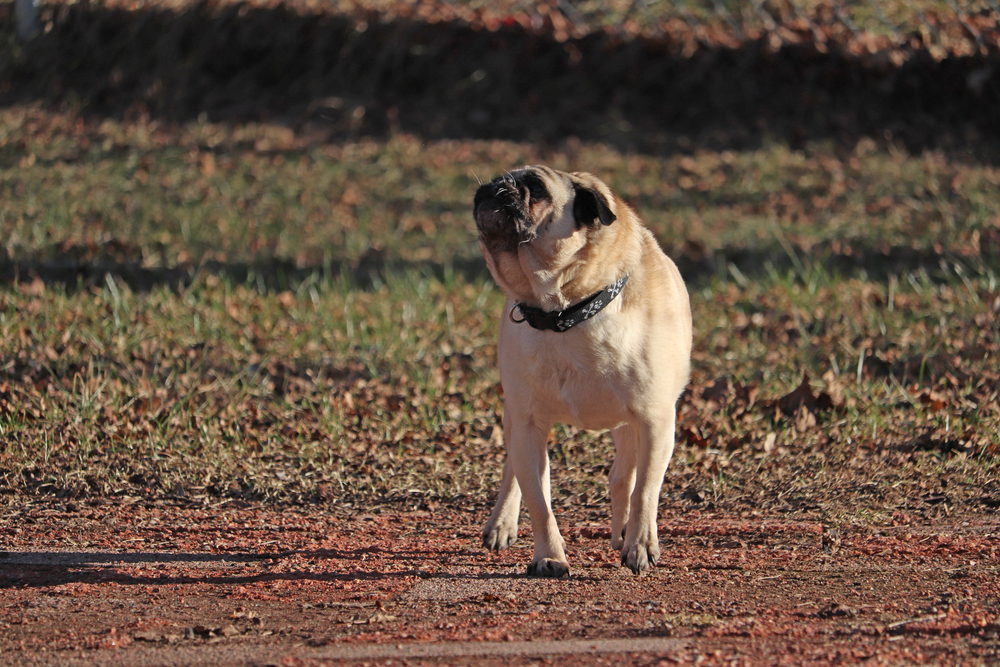
2. Gastroesophageal Reflux
If you or someone you know has gastroesophageal reflux disease (GERD), then you know your voice can get hoarse after experiencing reflux. The same goes for canines with GERD. This is due to stomach acid flowing back up into the esophagus, which irritates the back of the throat. Canines who experience GERD may also exhibit signs of discomfort, coughing, lip licking, and decreased appetite. They may regurgitate food immediately after eating, too.
This condition is uncomfortable and could result in weight loss for your dog. Fortunately most dogs show a rapid improvement in their signs once appropriate treatment is started with medications and dietary modifications.
3. Hypothyroidism
You have probably heard of hypothyroidism, but you may have only heard about it in relation to humans. However, dogs can also develop hypothyroidism and become deficient in thyroid hormone.
Hypothyroidism causes a metabolic “slow down” with many organ systems affected. Signs can include weight gain (even though a dog isn’t consuming more than they usually do), loss of fur, ear and skin infections, lethargy, and cold intolerance. Some dogs also develop a hoarse bark, usually due to laryngeal paralysis. This is a chronic condition and does require treatment; with treatment, a dog’s prognosis is good!
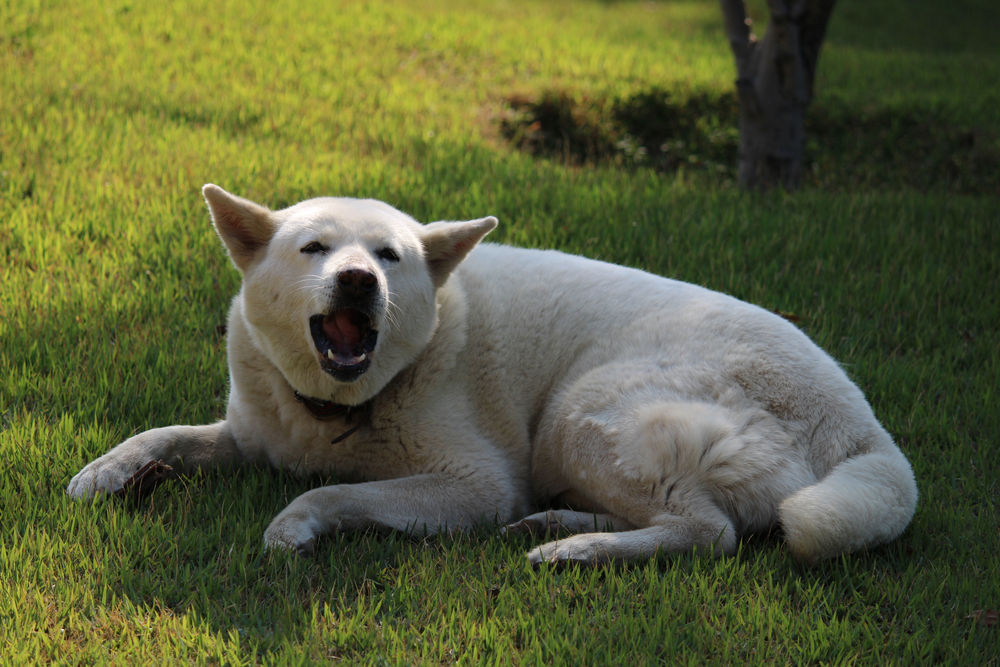
4. Inflammatory Laryngitis
Inflammatory laryngitis is one of the more common causes of hoarse bark in canines. It happens when the cartilage and soft tissue of the larynx (also known as the “voice box”) become inflamed. The cause can be infection (bacterial, fungal, or viral), too much barking, respiratory tract infection, or even allergies.
A cough is often one of the first signs of laryngitis, as it progresses there may be breathing difficulties which can be severe depending on the underlying cause. So if you suspect your pup has laryngitis, you want to get them to the vet sooner rather than later.
5. Laryngeal Paralysis
What is laryngeal paralysis, and how does it differ from inflammatory laryngitis? Laryngeal paralysis occurs when the cartilages of the larynx don’t open and close properly leading to breathing difficulties. Signs include a change in bark, dry cough and noisy breathing. Dogs often have breathing difficulties during exertion and stress, and it can lead to severe respiratory distress and collapse.
Though laryngeal paralysis can affect any breed, it is often a problem of middle aged to older, large and giant breed dogs such as Labradors, Great Danes and Irish Setters. It can quickly become an emergency situation, so if you see any signs of your pet having a hoarse bark alongside noisy breathing and coughing, get them to your vet as soon as possible. Mild cases may be able to be managed conservatively, but dogs with more severe signs usually need surgery.
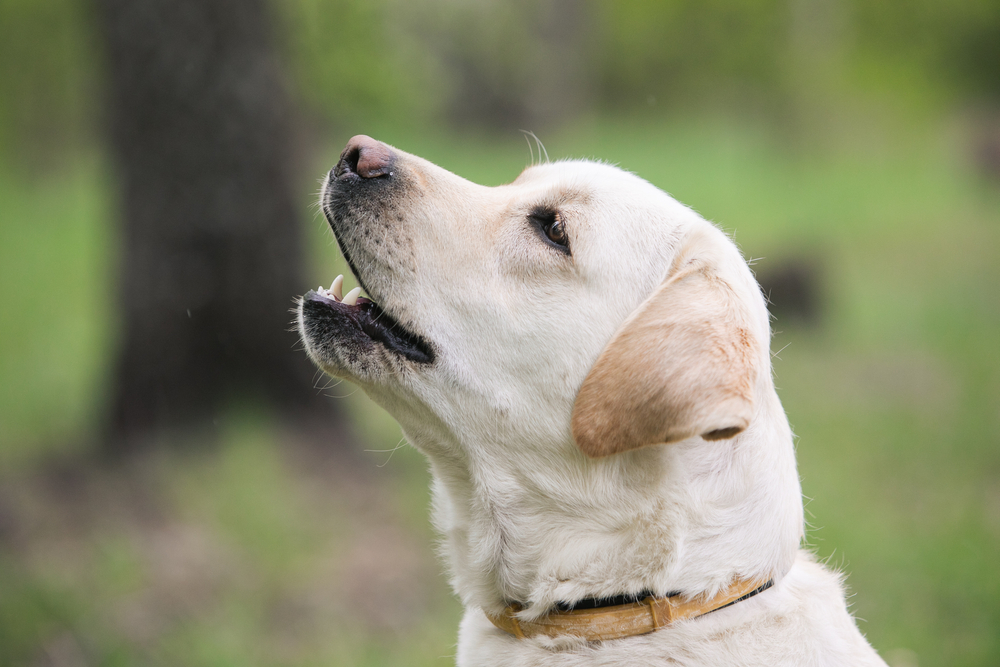
6. Tumors or Masses
One of the most serious causes of a hoarse bark is tumors or masses growing on the larynx. These can be malignant or benign, but either way, they can affect your dog’s voice because they interfere with the way the vocal cords function. This is yet another reason why it’s so vital to get your pup to the vet if they have a hoarse bark. If these masses are cancerous, they need to be identified sooner rather than later so treatment can begin. The earlier treatment happens, the better off your favorite canine will be.
7. Throat Trauma
Has your dog experienced trauma to the throat recently? Maybe they accidentally clotheslined themselves on something while playing or had a tussle with another dog that led to them being bit. Or perhaps they swallowed something they shouldn’t have that injured their throat from the inside. If any trauma has occurred to the throat, then it could affect your dog’s bark.
Get your pup to the vet as soon as possible so your vet can determine what damage has been done and properly treat it.
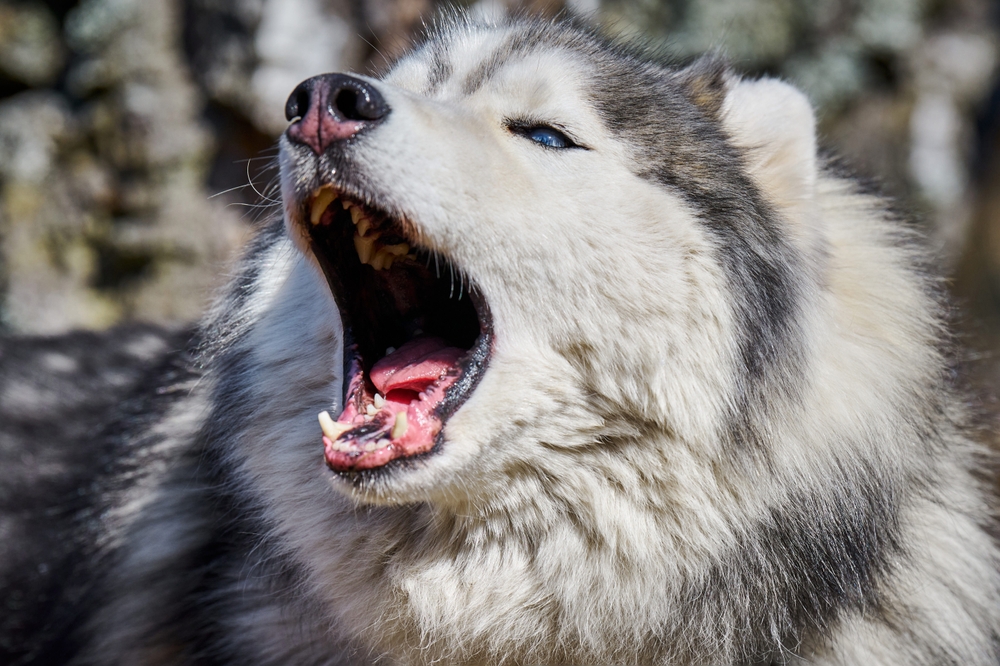
8. Toxicity
Many things in our homes aren’t great for our canine companions. Some are simply unhealthy (like potato chips), while others are toxic or poisonous (like chocolate). Some toxic items, such as certain plants, can cause irritation and swelling of the mouth and throat when chewed or eaten, which can lead to changes in their bark.
If you know your pup has ingested something that is potentially toxic, seek immediate veterinary advice and monitor for other signs of toxicity, such as vomiting, diarrhea, panting, drooling, or difficulty breathing.
If you need to speak with a vet but can't get to one, head over to PangoVet. It's our online service where you can talk to a vet online and get the advice you need for your pet — all at an affordable price!

Conclusion
If you have noticed that your dog’s voice has changed or their bark is hoarse, several issues could have caused it. Some of these causes are fairly benign, but others are quite serious, so the safest thing to do in this situation is check in with your vet. Your vet can determine the underlying cause and what sort of treatment your pup might need.
Featured Image Credit: Tanya Kalian, Shutterstock
